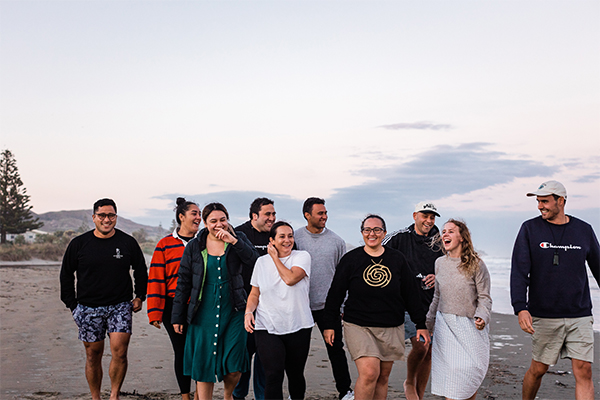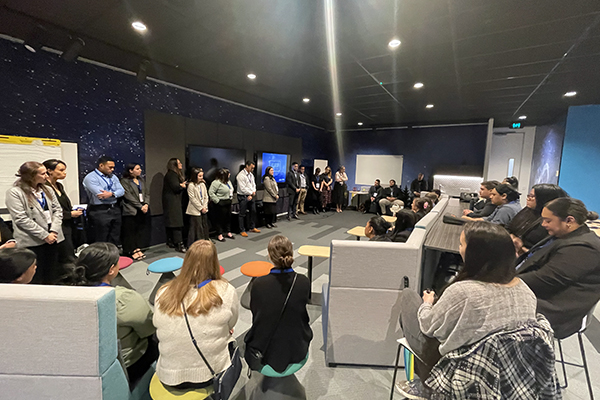Medium-Large Organisation Winner

Bringing Māori and Pasifika tertiary students into KPMG is essential to the firm’s aim to have a workforce representative of the communities it serves.
But in order for that to happen, the business needed to find a way for students to see themselves reflected in the various roles throughout the company and break down any preconceived ideas they might have about what a career in a corporate environment looks like.
KPMG is a global network of professional firms providing audit, tax and advisory services. In New Zealand, a team of more than 1300 professionals works with private businesses, publicly-listed companies, Government and public sector organisations, and not-for-profits.
“At KPMG New Zealand, we are committed to our vision of fuelling New Zealand’s prosperity. To be able to deliver on this vision, we must ensure that we have the right talent and level of diversity within the firm,” says Laura Youdan, KPMG’s National Managing Partner for Inclusion, Diversity and Equity.
“We must acknowledge, support, and attract our Māori and Pasifika communities. This is particularly important in areas like Auckland, where our main commercial business hub is located, and the Māori/Pasifika population is densely concentrated.”
One of the mechanisms KPMG has used to attract Māori and Pasifika applicants is building relationships with partnering high schools and offering its Kiwa Mentoring Programme to tertiary students.
The Kiwa Programme was established in 2017, initially as a mechanism for the personal and professional development of Māori and Pasifika employees through mentorship, based on a tuakana-teina model.
Since then, the programme has evolved. In April 2021 four Kiwa staff members gave a presentation to the firm’s Partnership on inclusion and belonging.
“They touched on the barriers that Māori and Pasifika face in entering the workforce as well as the common hardships of financial, familial, and societal pressures that impact aspiring students,” Laura says.
“The key message from their presentation was the significant impact that KPMG could have on our Māori and Pasifika communities, in line with the firm’s mission of ‘fuelling New Zealand’s prosperity’.”
Following the presentation, the Kiwa Mentoring Programme was allocated a dedicated budget and work hours and Kiwa grew as a nationally recognised affinity group that has since helped to shape the strategic outlook of the firm.
The mentoring initiative now focuses on preparing Māori and Pasifika tertiary students for a career in a corporate environment and has also become a mechanism for recruitment.
As well as one-on-one mentoring, there are workshops giving students valuable insight into potential corporate career pathways, the recruitment process, day-to-day work and networking across all divisions within the firm.
KPMG developed a Māori Business Case which was first used in 2021 for the case study workshop that Kiwa members, with support from the People, Performance and Culture team, deliver to students.

This business case allows Māori and Pasifika applicants to showcase their cultural values and viewpoints within a business context and numerous Māori and Pasifika staff have been recruited from the workshop.
Kiwa members also provide ongoing support and mentorship throughout the application and interview process, which may include things like a coffee catch-up before an interview to calm the applicants’ nerves.
The firm is implementing a process where a senior Kiwa member will be involved and present during the interview for all Māori and Pasifika applicants.
The success of the Kiwa Mentoring Programme and the related growth in recruitment and retention means KPMG now has staff available to work on Māori and Pasifika engagements.
The mentoring programme has also provided opportunities to develop existing Māori and Pasifika staff. “In addition to learning how to maintain and nurture impactful mentoring relationships, each workshop is led by a junior Kiwa member with support from a senior Kiwa member. This is also in line with the Māori and Pasifika values of reciprocity and service, as many of our Māori and Pasifika staff came through as Kiwa mentees and are given opportunities to give back to the programme that supported them,” says Laura.






